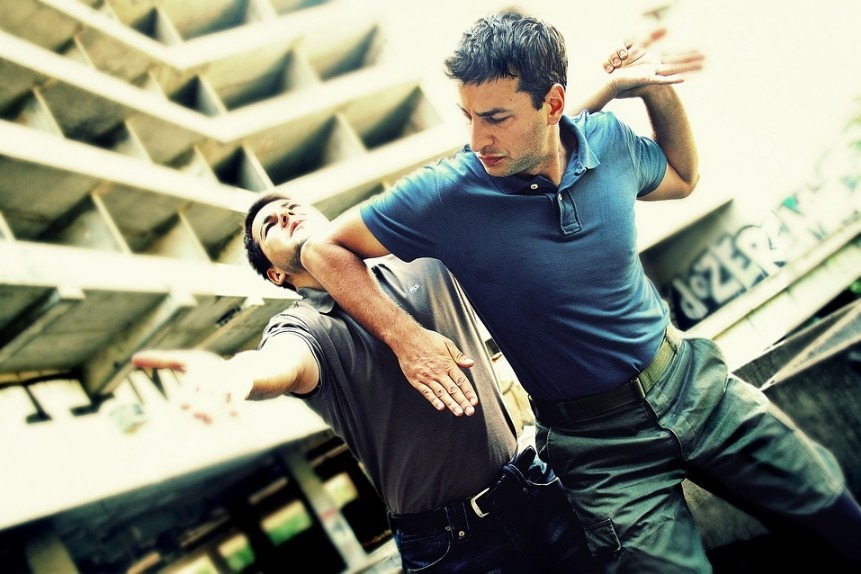DFW Self-Defense Classes Every Beginner Should Consider

With police response times often measured in minutes, self-defense training is increasingly valuable. Consider Six Blades Jiu-Jitsu's beginner-friendly cycles, Renzo Gracie programs with family options, or Genesis Jiu-Jitsu's proven instruction. Women-focused courses show meaningful reductions in victimization in studied groups, while family programs offer age-appropriate techniques.
Many locations provide affordable drop-ins ($10–$30) and free trials for newcomers unsure where to start. The right training extends far beyond physical techniques.
Why Self-Defense Training Matters for DFW Residents
While Dallas has recently seen improvements in some violent-crime indicators, the DFW area still faces safety challenges that make self-defense relevant. Because police response can take multiple minutes—longer than agencies' targets in certain calls—you may need to protect yourself in the critical window before help arrives. Staffing limits in big-city departments can also stretch resources during peak demand.
Crime isn't uniform across the metroplex. Some neighborhoods experience higher violent-crime exposure than others, and year-to-year homicide trends can fluctuate in nearby cities. Many assaults occur in or near the home, underscoring the need for situational awareness wherever you live.
Learning risk assessment and boundary-setting helps you spot and avoid trouble early. This preparation complements home security measures and aligns with evidence that early, decisive actions can disrupt criminal opportunity.
Top Brazilian Jiu-Jitsu Programs for Complete Beginners
Brazilian Jiu-Jitsu (BJJ) is widely regarded for practical self-defense—especially its emphasis on leverage and control. For beginners, Six Blades Jiu-Jitsu often runs introductory sequences focused on survival positions and safe escapes.
Renzo Gracie schools provide lineage-based training with youth and adult tracks. Facilities typically feature ample mat space and structured basics classes.
If you prefer a competitive environment, Genesis Jiu-Jitsu offers strong instruction with cross-training (e.g., Muay Thai) at select locations. Alex Martins BJJ is known for coaching accessibility, while Certified Gracie Training Centers keep a self-defense-first curriculum for adults.
Most schools offer a free trial—try a couple to see which instruction style and culture fit your goals.
Women-Focused Classes That Prioritize Real-World Safety
Women-centered programs in DFW are growing, driven by interest in personal protection and confidence building. Research on collegiate and community self-defense shows substantial reductions in attempted or completed assaults among trained participants, along with improved self-efficacy. Importantly, using properly taught resistance does not correlate with higher injury risk.
Where to start in DFW:
- Krav Maga Dallas (Plano) runs recurring Women's Intro Workshops and ongoing Krav Maga classes focused on threat recognition, striking, and escapes (Independence Pkwy). New students can book a no-sweat consult and trial session.
- DFW Combat Co. (Dallas) hosts specialty Women's Anti-Abduction workshops and offers Krav Maga foundations you can drop into year-round.
- Gracie-based options: Several schools in the metro teach Women Empowered (Gracie University's 15-lesson program covering the 20 most common attacks); ask nearby Gracie-affiliated academies for their WE schedule.
- Genesis Jiu-Jitsu (Fort Worth/River Oaks) provides beginner-friendly BJJ with evening slots that emphasize positional escapes and control—excellent for ground-defense confidence.
- Periodic intensives like Model Mugging's weekend course and Premier Martial Arts Lakewood's 6-week women's series appear on the calendar through the year if you prefer short, structured programs.
DFW classes emphasize realistic scenarios in common settings (home, parking areas, rideshares). You'll learn situational awareness, verbal de-escalation, and high-percentage responses to grabs, pins, and stalking patterns. Courses maintain supportive environments while teaching skills you can recall under stress.
Family-Friendly Options: Where Kids and Parents Can Train Together
Many academies now welcome families so kids and parents can train on the same evening—sometimes in parallel classes. Techniques are scaled by age, focusing on posture, distance, and simple escapes for children, with expanded options for adults.
Good family picks in DFW:
- Krav Maga Dallas (Plano) schedules Kids, Teens, and Family-focused time blocks so parents can train before/after youth sessions—ask for the latest evening lineup.
- Fort Worth Combatives mixes Gracie Jiu-Jitsu, Combatives, and first-aid offerings; check their live schedule for kids/teens plus adult classes under one roof.
- Plano Parks & Recreation periodically runs Kids Krav Maga sessions (e.g., Carpenter Park Rec Center), which pair well with a parent's adult class elsewhere the same evening.
- Texas Defense Academy (Fort Worth) and 5 Elements Studio (Dallas) offer youth programs that share a common vocabulary with adult self-defense, making at-home practice easier.
- Schools that require a parent on the mat (pad-holding/assists) build strong family habits—look for programs that advertise parent participation in class.
Look for family pricing and multi-member discounts. Centers across DFW blend practical skills with fitness, discipline, and shared vocabulary for safety at home. Whether you choose BJJ, Krav Maga, or a blended curriculum, the family format builds trust and resilience together.
Affordable Drop-In Classes Across the Metroplex
Busy schedule? Many gyms offer drop-ins and intro packs so you can learn without a long contract. You'll find military/first-responder discounts, student rates, and transparent day passes at numerous facilities across Dallas, Fort Worth, Plano, and Arlington.
- DFW Combat Co. (Dallas)—long-running self-defense hub—offers free trial options and specialty workshops you can attend à la carte.
- Krav Maga Dallas (Plano)—easy to start via no-sweat consultation and trial; recurring workshops mean you can sample before committing.
- Fort Worth Combatives posts a public schedule for seminars (combatives, trauma care) and regular classes so you can pick dates that fit.
- One-off women's series pop up frequently (e.g., 6-week lakewood course); Eventbrite is a good way to catch scheduled cohorts if you prefer fixed start/finish.
Expect drop-ins in the $10–$30 range, with evening and weekend availability. Free trials are common—use them to test coaching style, partner culture, and safety protocols before signing.
No-Experience-Needed: Programs That Start With the Basics
Good beginner programs start with stance, movement, basic strikes, and simple clinch or ground escapes—not flashy techniques. Many include scenario training, practicing verbal boundaries and step-by-step responses to common confrontations. From Krav Maga's instinctive movements to BJJ's ground-defense staples, instructors focus on repeatable skills you'll remember under adrenaline.
Schedules vary by school; seek structured fundamentals tracks and clear progression milestones. Most gyms invite you to observe or trial before you commit.
Beyond Physical Skills: Mental Preparedness Training
The mental game is as crucial as the physical. Quality programs teach visualization, stress inoculation, and breathing to keep you functional under pressure. You'll practice threat recognition, pre-planning exits, and post-incident decision-making (calling 911, seeking witnesses, documenting injuries).
This holistic approach—mindset, awareness, and technique—helps you remain calm, decisive, and proportional when facing real-world problems.
Comparing Different Self-Defense Philosophies in DFW
Across the DFW metroplex, distinct self-defense philosophies have emerged to address varying personal protection needs and preferences. Choose what fits your needs:
- Jeet Kune Do (JKD) applies adaptable striking and forward pressure across ranges, sometimes integrating Filipino martial arts concepts.
- Krav Maga prioritizes simple, stress-tested movements designed to work regardless of size or strength.
- Grappling arts (BJJ, Sambo, Catch Wrestling) emphasize positional control and submissions, equalizing size advantages once fights hit the ground.
- Filipino martial arts (e.g., Kali, Pekiti Tirsia) teach transferable weapon and empty-hand principles; schools follow strict safety policies and legal briefings.
What to Bring and Expect at Your First Class
Wear athletic clothing that allows full movement; most grappling classes are barefoot on mats, while striking programs may require clean indoor shoes. Bring a water bottle and small towel. Over time, you may add a mouthguard, groin protection, shin guards, or 4–16 oz gloves depending on the discipline—many gyms have loaner gear.
Expect a safety briefing, warm-up, and fundamental technique, followed by drills or light partner work. Sessions typically run 60–90 minutes. Beginners progress fastest at 2–3 classes per week, but even once-weekly training builds skills over time.
Conclusion
Taking that first class isn't just about techniques—it's about confidence, preparedness, and judgment. Whether you choose BJJ, women-focused training, or family programs, you'll gain skills that extend beyond the mat. Don't overthink your first session—show up, stay curious, and build from there. Your future self will thank you for investing in your safety and well-being.




